
Serekunda: The Heartbeat of The Gambia
Serekunda, the largest city in The Gambia, is a bustling hub of culture, commerce, and history. Located just a short drive from the capital, Banjul, Serekunda offers visitors a vibrant taste of urban life mixed with rich traditions and colorful markets. The city's lively atmosphere is a testament to its diverse population and dynamic street scenes. One of the main attractions in Serekunda is its bustling market, where visitors can find everything from vibrant textiles and handcrafted jewelry to fresh produce and traditional Gambian cuisine. The market is a sensory delight, with the sounds of haggling vendors, the aroma of fresh spices, and the sight of vivid fabrics creating a truly immersive experience. Serekunda is also known for its beautiful beaches, such as Kololi and Kotu, which offer a serene escape from the city's hustle and bustle. These beaches are perfect for sunbathing, swimming, and enjoying stunning sunsets over the Atlantic Ocean. Additionally, the nearby Bijilo Forest Park provides an opportunity to explore the local flora and fauna, including playful monkeys and a variety of bird species. For those interested in the cultural aspects of Serekunda, the city's music and dance scene is not to be missed. Traditional Gambian rhythms and dances are often performed at local events and festivals, providing a glimpse into the country's rich cultural heritage. The city also offers a range of dining options, from street food stalls to upscale restaurants, where visitors can savor delicious Gambian dishes such as domoda and benachin.
Local tips in Serekunda
- Visit the Serekunda Market early in the morning to avoid the crowds and get the freshest produce.
- Always negotiate prices at the market; it's a common practice and part of the experience.
- Carry cash, as many vendors and small shops do not accept credit cards.
- Explore nearby Kololi and Kotu beaches for a relaxing day by the sea.
- Take a guided tour of Bijilo Forest Park to learn about the local wildlife and environment.
- Try local dishes like domoda (peanut stew) and benachin (one-pot rice) at street food stalls for an authentic taste of Gambian cuisine.
- Attend a local music or dance performance to experience traditional Gambian culture.
- Be respectful of local customs and dress modestly, especially when visiting religious sites.
Serekunda: The Heartbeat of The Gambia
Serekunda, the largest city in The Gambia, is a bustling hub of culture, commerce, and history. Located just a short drive from the capital, Banjul, Serekunda offers visitors a vibrant taste of urban life mixed with rich traditions and colorful markets. The city's lively atmosphere is a testament to its diverse population and dynamic street scenes. One of the main attractions in Serekunda is its bustling market, where visitors can find everything from vibrant textiles and handcrafted jewelry to fresh produce and traditional Gambian cuisine. The market is a sensory delight, with the sounds of haggling vendors, the aroma of fresh spices, and the sight of vivid fabrics creating a truly immersive experience. Serekunda is also known for its beautiful beaches, such as Kololi and Kotu, which offer a serene escape from the city's hustle and bustle. These beaches are perfect for sunbathing, swimming, and enjoying stunning sunsets over the Atlantic Ocean. Additionally, the nearby Bijilo Forest Park provides an opportunity to explore the local flora and fauna, including playful monkeys and a variety of bird species. For those interested in the cultural aspects of Serekunda, the city's music and dance scene is not to be missed. Traditional Gambian rhythms and dances are often performed at local events and festivals, providing a glimpse into the country's rich cultural heritage. The city also offers a range of dining options, from street food stalls to upscale restaurants, where visitors can savor delicious Gambian dishes such as domoda and benachin.
When is the best time to go to Serekunda?
Iconic landmarks you can’t miss
Kachikally Crocodile Pool
Experience the allure of Kachikally Crocodile Pool, where wildlife encounters meet rich Gambian folklore in a serene oasis in Bakau.
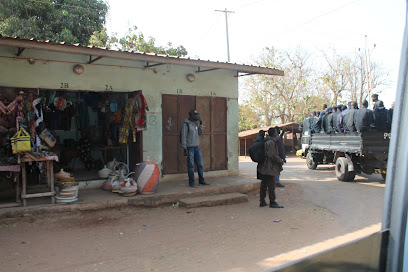
Senegambia Craft Market
Explore the colorful Senegambia Craft Market, a vibrant hub for authentic Gambian crafts, art, and local culture in the heart of The Gambia.
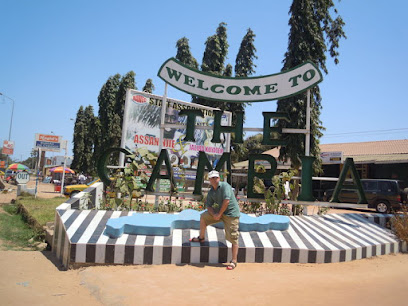
Coco Ocean Resort & Spa Hotel
Experience the ultimate luxury at Coco Ocean Resort & Spa in Bijilo, The Gambia, where stunning beaches and world-class amenities await.

Kairaba Beach Hotel
Experience luxury and culture at Kairaba Beach Hotel, Serrekunda's premier resort destination for relaxation and adventure in Gambia.
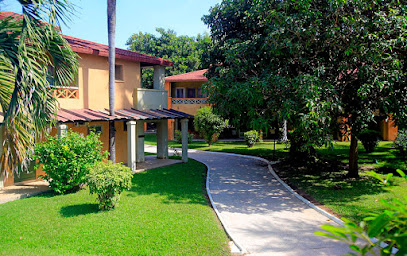
Bijilo National Park
Explore the lush landscapes and vibrant wildlife of Bijilo National Park, a tranquil escape in Gambia's heart, perfect for nature enthusiasts and adventurers.
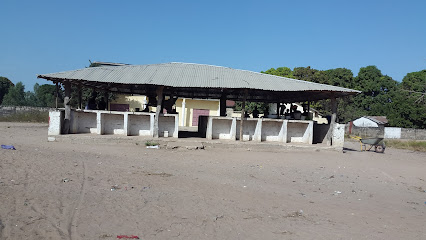
Serekunda Market
Discover the vibrant Serekunda Market, a cultural gem in The Gambia showcasing local crafts, delicious food, and the warmth of Gambian hospitality.
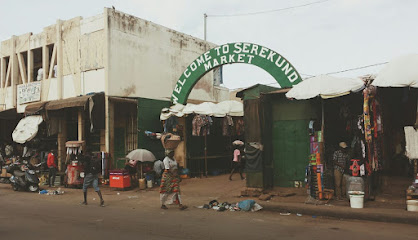
Bijilo Monkey Park
Discover the beauty of Bijilo Monkey Park, a natural sanctuary in The Gambia where playful monkeys and diverse wildlife await your visit.
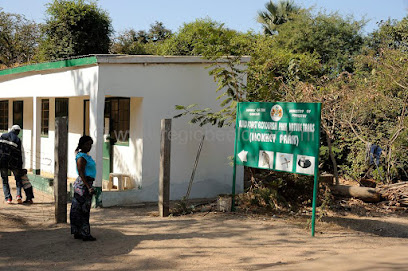
Poco Loco Beachbar Gambia
Experience the vibrant atmosphere of Poco Loco Beachbar in Serrekunda, where delicious cuisine meets stunning ocean views for an unforgettable Gambian getaway.
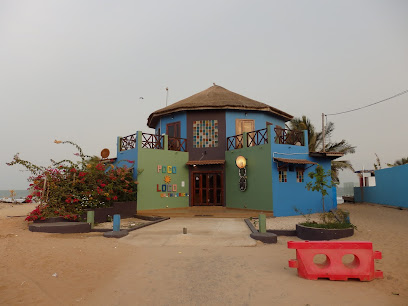
Albert Market
Experience the vibrant culture of Banjul at Albert Market, where local life, flavors, and crafts come together in a bustling atmosphere.
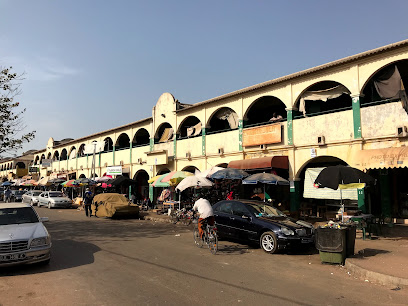
Kombo Beach Resort
Experience the beauty and culture of Gambia at Kombo Beach Resort, the perfect beachfront getaway for relaxation and adventure.
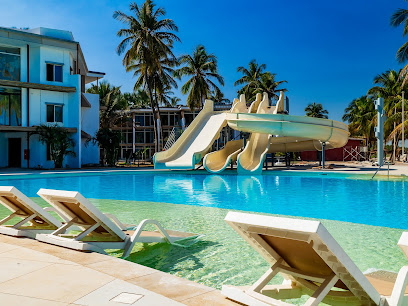
African Princess Beach Hotel
Discover tranquility and luxury at African Princess Beach Hotel, a serene resort on the stunning Kotu Beach in The Gambia, perfect for relaxation and adventure.

Oh la la Spa
Discover serenity at Oh la la Spa in Banjul, where luxurious treatments and a tranquil atmosphere create an unforgettable relaxation experience.
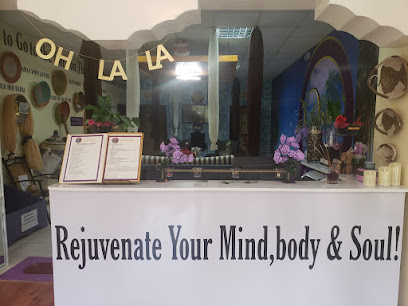
Balafon Beach Resort
Discover the beauty of Gambia at Balafon Beach Resort, where luxury meets local culture in the heart of Serrekunda's stunning coastline.

Lamin Lodge
Discover the charm of Lamin Lodge, where boating adventures meet authentic Gambian dining in a picturesque marina setting.
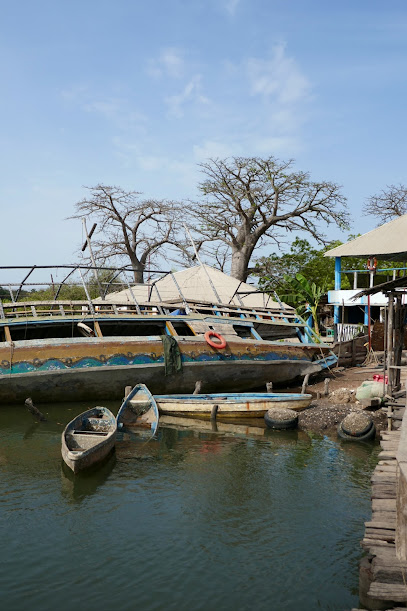
Arch 22
Discover Arch 22, a remarkable historical landmark in Banjul, representing the spirit of The Gambia's independence and offering stunning views.
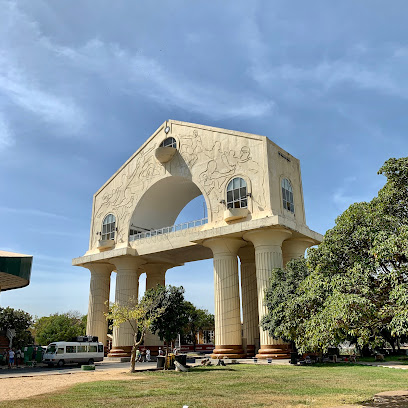
Unmissable attractions to see
Kachikally Crocodile Pool
Experience the captivating Kachikally Crocodile Pool in Bakau, Gambia - a sanctuary of culture, folklore, and West African crocodiles.
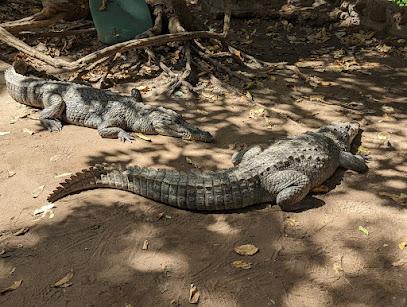
Fathala Wildlife Reserve
Discover the beauty of wildlife at Fathala Wildlife Reserve, where adventure meets luxury in the heart of Senegal's natural wonders.
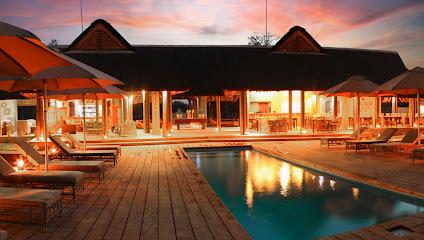
Bijilo National Park
Explore the lush landscapes and diverse wildlife of Bijilo National Park, a serene retreat in Serrekunda, Gambia's natural wonderland.
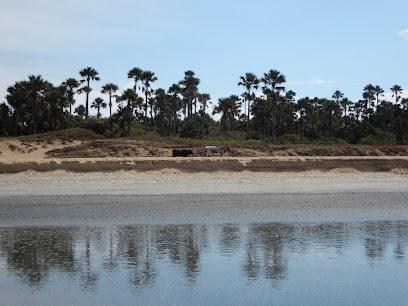
Bijilo Monkey Park
Discover the lively Bijilo Monkey Park in Serrekunda, a vibrant sanctuary filled with playful monkeys and lush natural beauty.
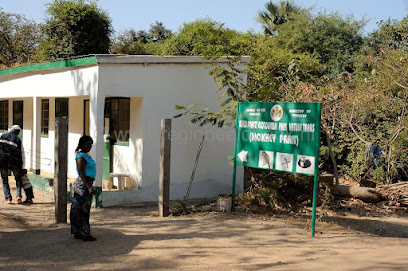
Albert Market
Explore the vibrant Albert Market in Banjul, where local culture, crafts, and cuisine come alive in a colorful and bustling marketplace.
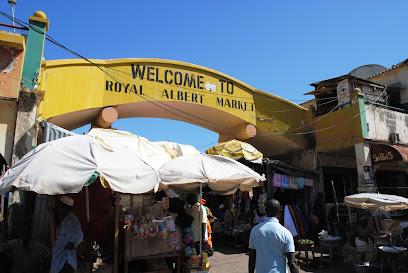
Saloum Delta National Park
Discover the breathtaking landscapes and diverse wildlife of Saloum Delta National Park, a UNESCO World Heritage site in Senegal, perfect for nature lovers and adventurers.
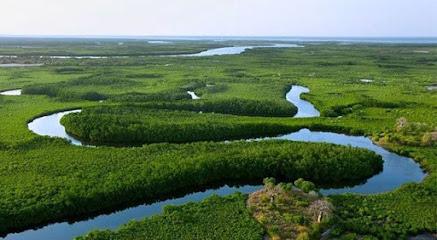
National Museum Of The Gambia
Explore the National Museum of The Gambia, a cultural gem in Banjul showcasing the country's rich history and diverse heritage.
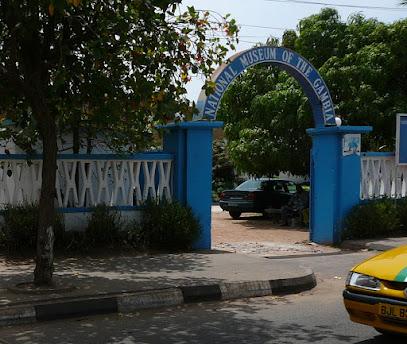
Tanji Fishing Center 🎣 bass
Experience the vibrant culture and local flavors at Tanji Fishing Center, a must-visit fishing port on The Gambia's breathtaking coast.
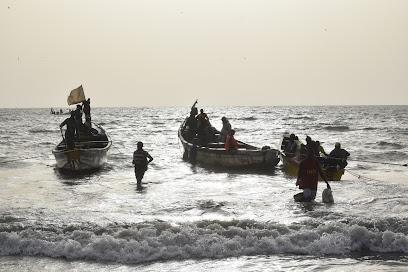
Crocodile Pool
Discover the mesmerizing world of crocodiles at the Crocodile Pool in Bakau, a serene park offering wildlife encounters and lush landscapes.
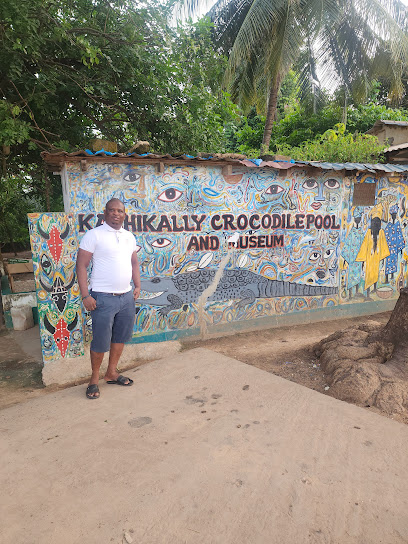
Makasutu
Explore the stunning landscapes and rich biodiversity of Makasutu National Park, a national treasure in Gambia's natural heritage.
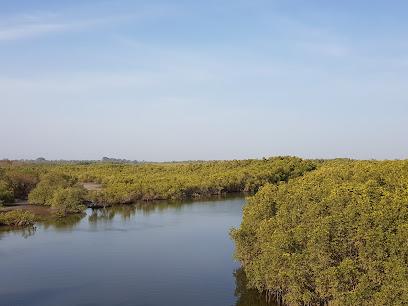
Tanje Village Museum
Experience the heart of Gambian culture at Tanje Village Museum, where tradition, history, and wildlife intertwine in an engaging setting.
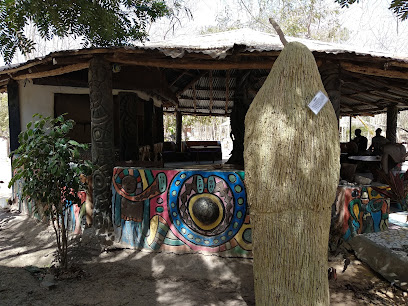
Black and White Safari
Embark on an unforgettable safari adventure with Black and White Safari, where Gambia's wildlife and culture come alive.
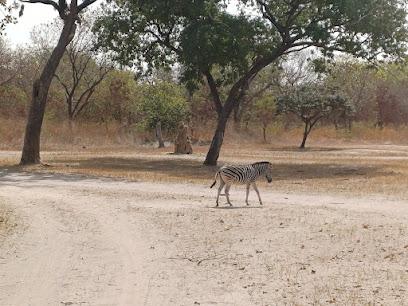
National Botanical Gardens
Discover the beauty of native flora and tranquil pathways at the National Botanical Gardens in Bakau, a serene escape into nature's charm.
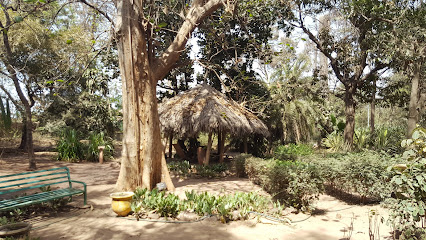
Nino & Kodeh Watersport & Entertainment
Experience thrilling water sports and unforgettable adventures at Nino & Kodeh Watersport & Entertainment in Gambia's stunning coastal paradise.
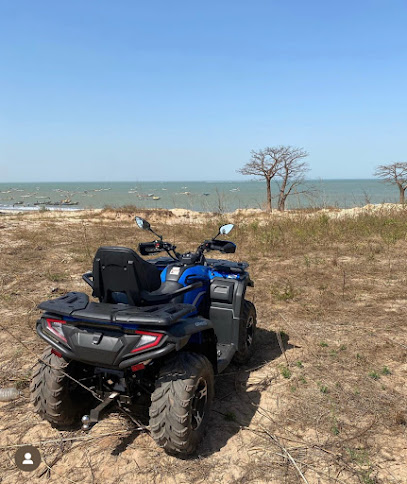
Saro's Tree Nursery & Ornamental Garden
Explore the vibrant flora and tranquility at Saro's Tree Nursery & Ornamental Garden in Serrekunda, a haven for nature lovers and plant enthusiasts.
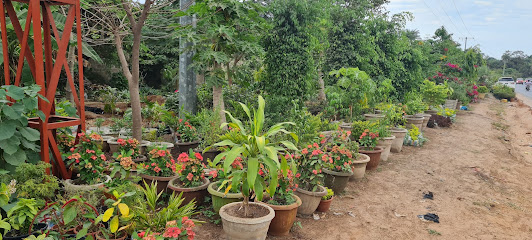
Essential places to dine
Poco Loco Beachbar Gambia
Discover Poco Loco Beachbar in Gambia - where vibrant culture meets stunning beachfront relaxation for an unforgettable getaway.
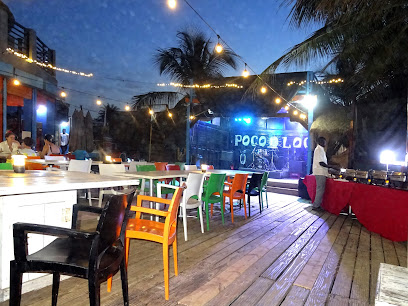
Paradiso Restaurant
Experience the rich flavors of Gambian cuisine at Paradiso Restaurant in Serrekunda – where every meal tells a story.
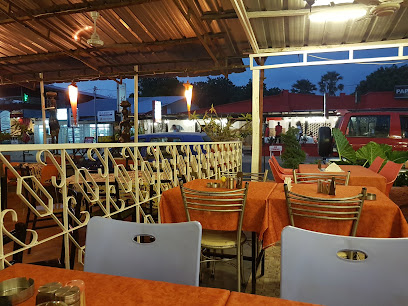
John Raymond'S Beach Bar And Restaurant
Experience exquisite dining at John Raymond's Beach Bar and Restaurant in Serrekunda - where local flavors meet stunning ocean views.
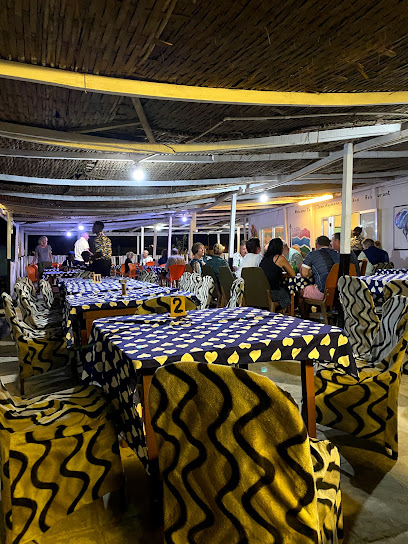
Scala Restaurant
Discover authentic Gambian cuisine at Scala Restaurant in Serrekunda - where flavors meet hospitality in an inviting atmosphere.
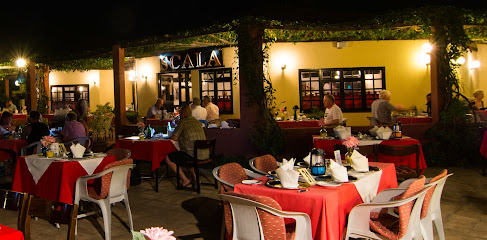
Mo2 Jamaican Bar & Restaurant Gambia (Mosiah's)
Savor authentic Jamaican cuisine at Mo2 Jamaican Bar & Restaurant in Gambia—where every bite takes you on a flavorful journey.
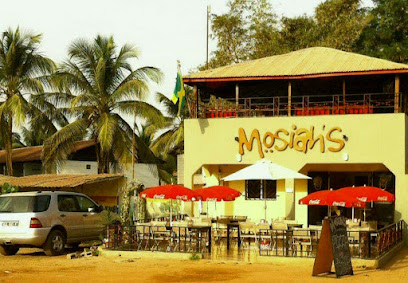
Villa Roula
Experience authentic Gambian flavors at Villa Roula - a culinary haven in Serrekunda combining tradition with modern flair.
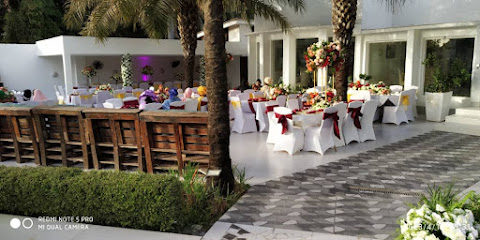
Gusto Italian Resto &bar
Experience authentic Italian cuisine at Gusto Italian Resto & Bar in Serrekunda - where flavor meets hospitality!
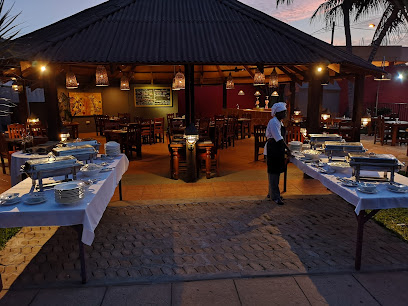
Darboe's Bar and Restaurant
Experience authentic Gambian cuisine at Darboe's Bar and Restaurant in Serrekunda – where every dish tells a story.
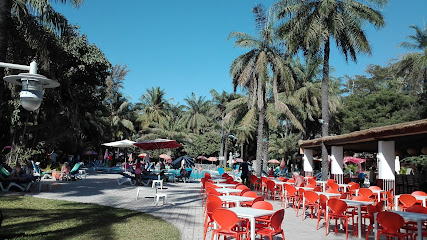
Mango Indian Global Kitchen, Bar and Restaurant
Experience authentic Indian cuisine at Mango Indian Global Kitchen on Senegambia Strip – where every dish tells a story.
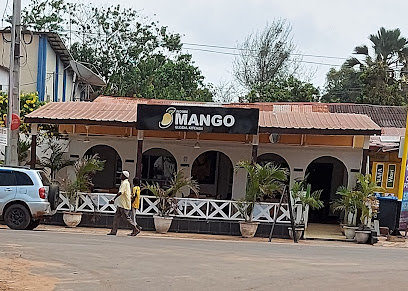
Vineyard Restaurant
Experience authentic Gambian cuisine at Vineyard Restaurant in Serrekunda - where local flavors meet international flair.
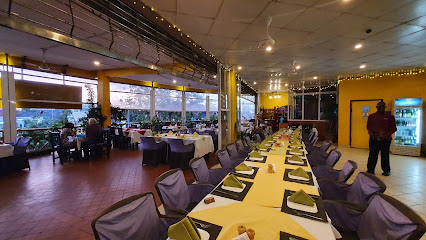
Paradise Beach Club Gambia
Discover the flavors of Gambia at Paradise Beach Club—where exquisite cuisine meets stunning ocean views in Serrekunda.
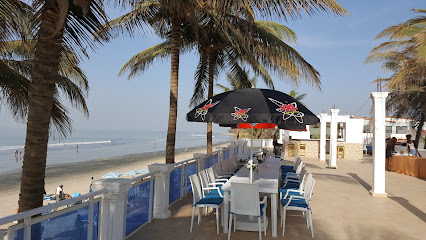
3 Chicks & A Grill
Experience vibrant dining at 3 Chicks & A Grill in Serrekunda; indulge in delicious grilled specialties amidst lively ambiance.
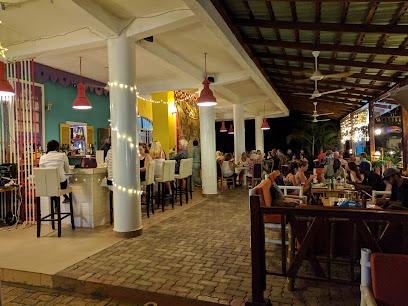
Rendezvous Grill Steak house and Cafe
Experience the best steaks in Serrekunda at Rendezvous Grill Steakhouse and Café - where taste meets tradition.
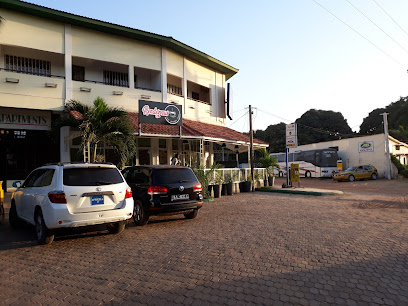
Sea Shells Bar & Restaurant
Discover delightful Gambian cuisine at Sea Shells Bar & Restaurant – where every meal is an unforgettable experience amidst stunning views.
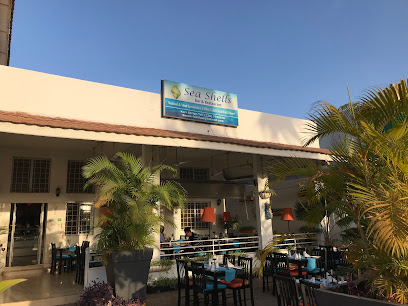
Al Terrace
Discover the flavors of Gambia at Al Terrace - where local cuisine meets breathtaking views in Senegambia.
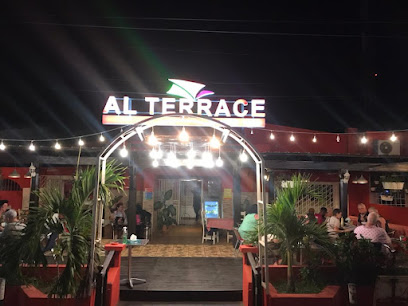
Markets, malls and hidden boutiques
The Village Shopping and Dining Centre
Experience a blend of local culture and global retail at The Village Shopping and Dining Centre in Serrekunda.
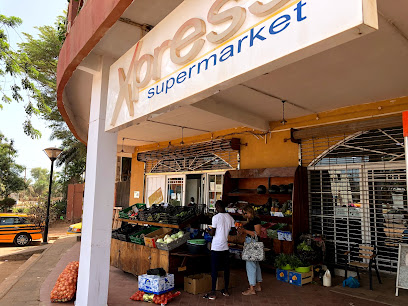
Mall of Gambia
Explore the Mall of Gambia: A vibrant shopping destination that blends local culture with modern retail and dining experiences.
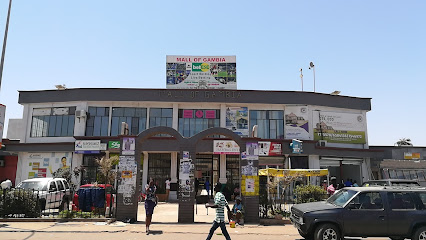
TOP-SHOP
Explore the essence of Gambian culture at Top-Shop, where handcrafted souvenirs and local art come together to create unforgettable memories.
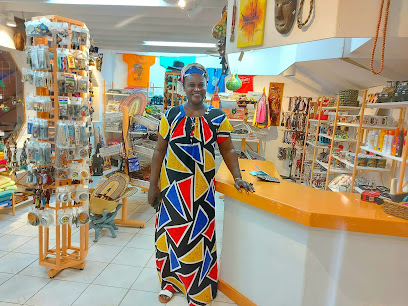
VIP Fashion Shop
Explore the vibrant fashion scene at VIP Fashion Shop in Serrekunda, offering exquisite accessories that celebrate Gambian style.
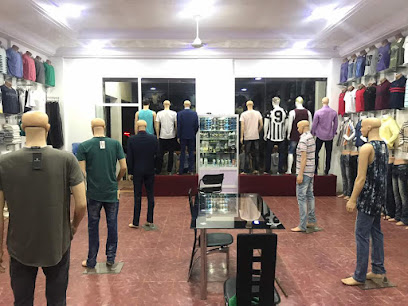
Yarn IBRAHIM ORIGINAL MOBILE SHOP
Discover the best in mobile technology at Yarn IBRAHIM ORIGINAL MOBILE SHOP, KMC's premier electronics destination for tourists.
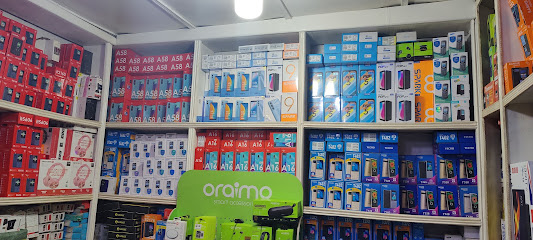
American Shop
Experience a taste of America at the American Shop in Serrekunda, where familiar flavors meet local charm.
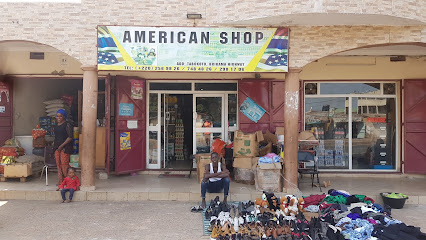
Vivar Textiles, Serrekund, Gambia
Explore the vibrant world of Gambian textiles at Vivar Textiles in Serrekunda, where culture meets craftsmanship in every fabric.
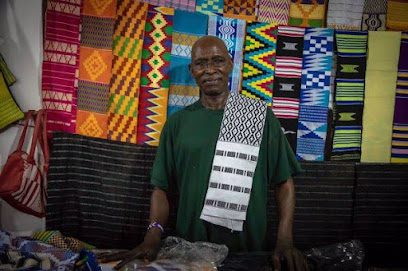
Munyagen shop
Discover the best of beauty at Munyagen Shop in Serrekunda, where local charm meets a diverse range of cosmetics for every traveler.
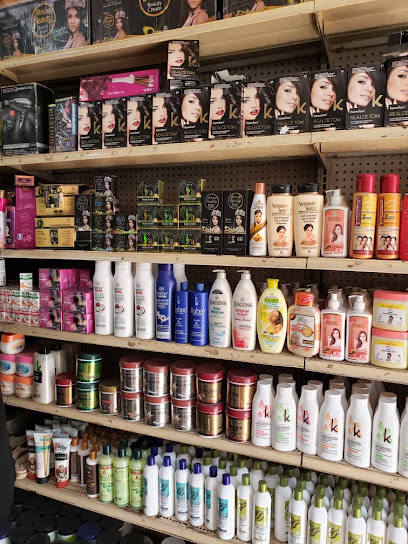
Goods for Gambia
Discover unique Gambian fashion and support local artisans at Goods for Gambia, a vibrant clothing destination in Serrekunda.
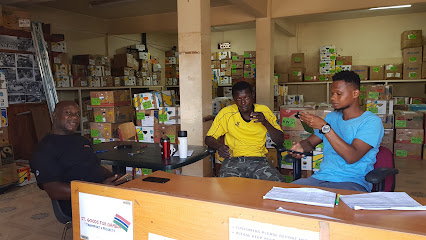
Flourish Boutique
Explore Flourish Boutique in Serrekunda for stylish women's clothing and unique local designs that capture the essence of Gambian culture.
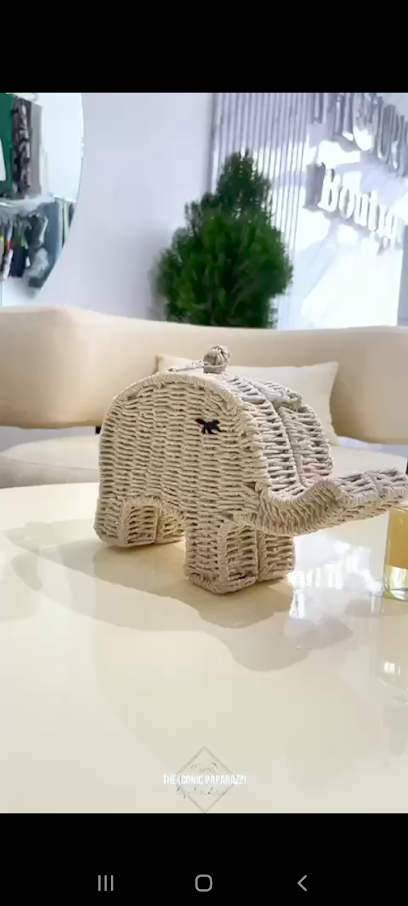
Bintou's Closet
Discover the essence of Gambian fashion at Bintou's Closet, offering a unique blend of traditional and contemporary styles in Serrekunda.
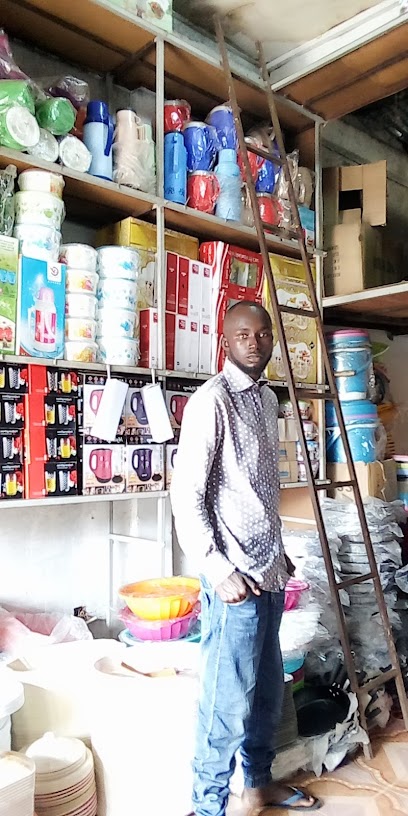
Tejan collection
Explore Tejan Collection in Serrekunda for a unique blend of modern and traditional fashion, showcasing the best of Gambian style.

Mana’s Shop
Discover Mana’s Shop in Serrekunda, a vibrant clothes market offering unique fashion and sportswear, perfect for every shopper's delight.
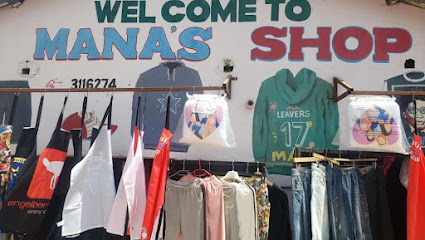
MB Fashion
Discover unique clothing and vibrant local styles at MB Fashion in Serrekunda, a hub for fashion lovers exploring the beauty of The Gambia.

Tarrou+
Discover the vibrant world of fashion, beauty, and decor at Tarrou+ in Serrekunda, a must-visit destination for style enthusiasts.
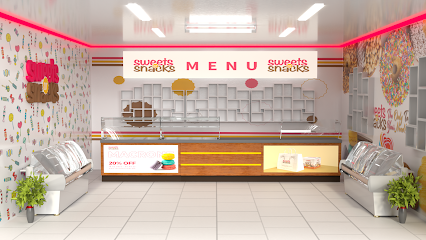
Essential bars & hidden hideouts
Solomon’s Beach Bar & Restaurant
Discover the vibrant charm of Solomon’s Beach Bar & Restaurant, where stunning views, delicious cuisine, and a lively atmosphere await you on your Gambian adventure.
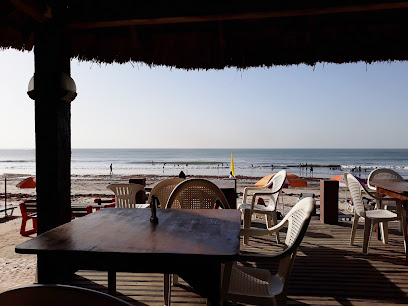
Reo's Bar and Restaurant
Discover the vibrant nightlife and delicious cuisine at Reo's Bar and Restaurant in the heart of Serrekunda, a perfect spot for tourists.
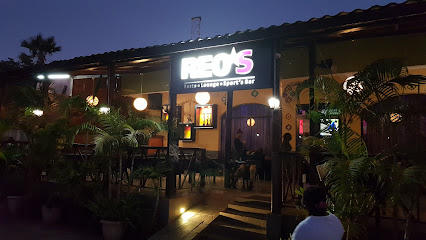
GT's Bar & Restaurant
Experience the vibrant nightlife of Serrekunda at GT's Bar & Restaurant, where delicious cuisine meets refreshing drinks in a lively atmosphere.
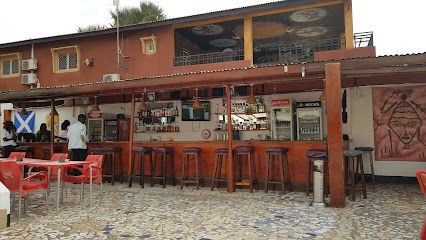
Time-Inn
Experience the vibrant nightlife at Time-Inn, a bar in Serrekunda offering refreshing drinks and a welcoming atmosphere perfect for tourists.
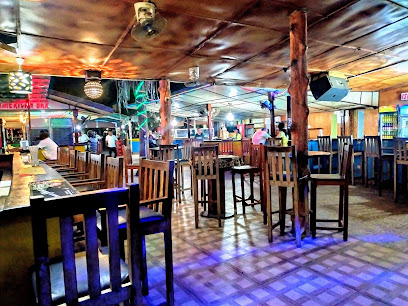
The Kotu Point Beach Bar
Experience the vibrant atmosphere and stunning ocean views at Kotu Point Beach Bar, a must-visit tropical oasis in The Gambia.
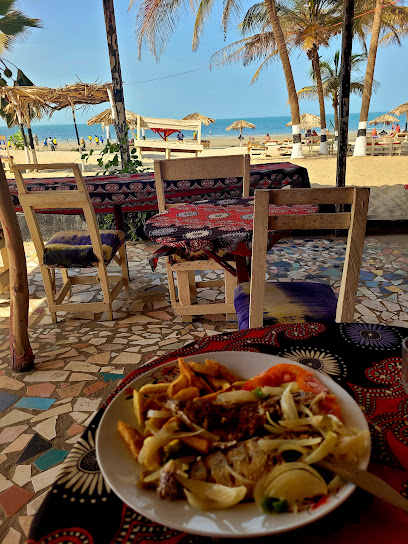
Cassy's Lounge
Discover the vibrant nightlife at Cassy's Lounge in Serrekunda, where every sip tells a story and every night is unforgettable.
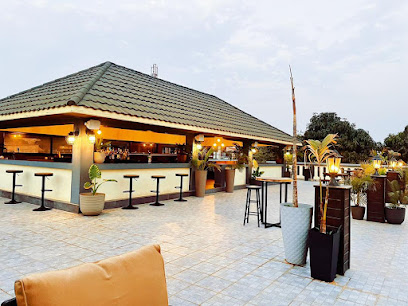
Blagger's Bar and Restaurant
Discover Blagger's Bar and Restaurant in Serrekunda, a gastropub offering a fusion of Gambian and international flavors in a vibrant atmosphere.
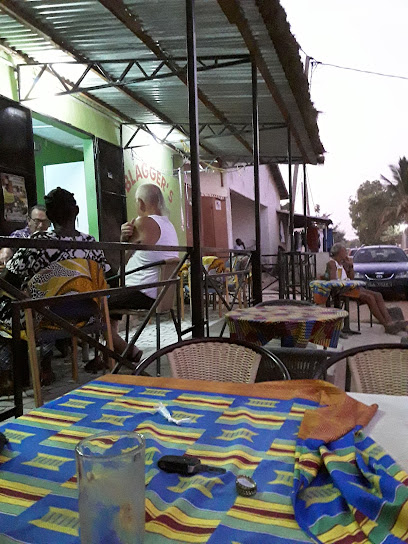
Muna's Bar And Restaurant
Experience the vibrant culture and delectable cuisine of Serrekunda at Muna's Bar and Restaurant, a locals' favorite for food and fun.
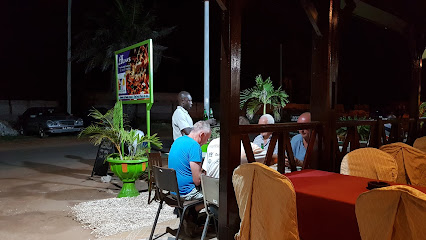
ELIDIS CAFE BAR
Experience the vibrant atmosphere of Elidis Cafe Bar in Serrekunda, offering local cuisine, refreshing drinks, and a taste of Gambian culture.
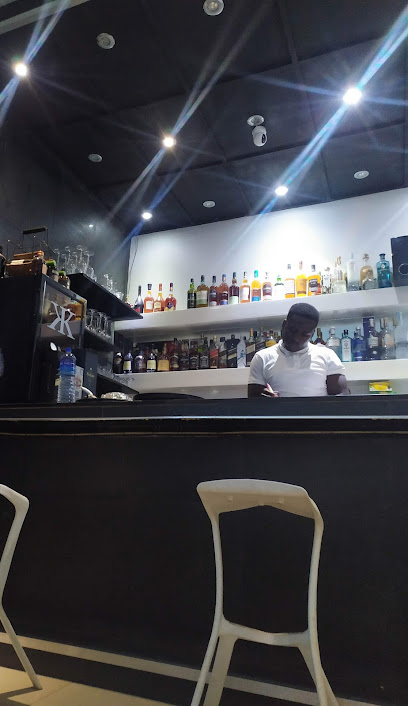
Paddies Bar & Restaurant
Experience the vibrant nightlife at Paddies Bar & Restaurant in Serrekunda, where cheap drinks and a lively atmosphere await.
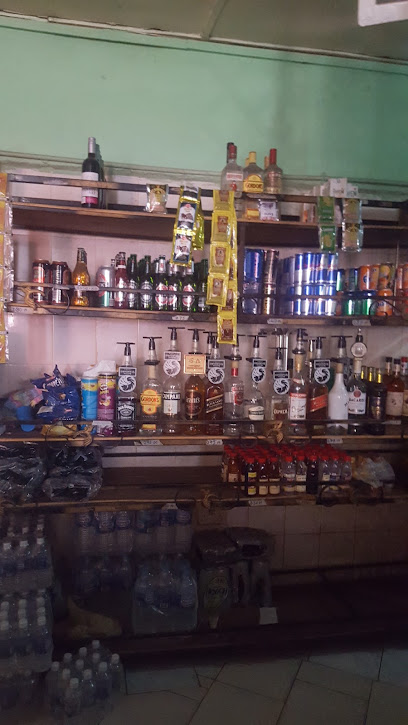
Marie's Bar & Restaurant
Unwind at Marie's Bar & Restaurant in Serrekunda, where vibrant ambiance meets delicious local cuisine and refreshing drinks.
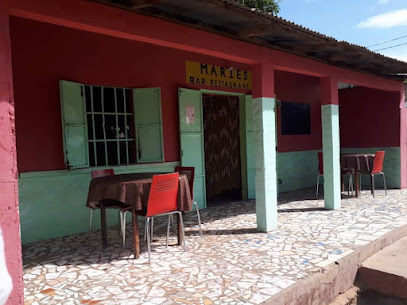
Spendaz Bar Lounge & 24hr Restaurant
Discover the lively ambiance and diverse menu at Spendaz Bar Lounge & 24hr Restaurant, a perfect blend of local culture and culinary delights in Serrekunda.
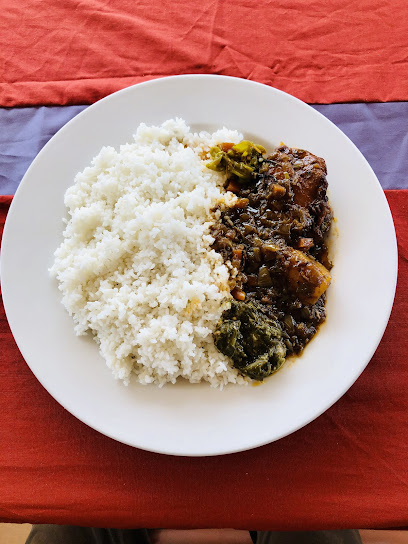
Propaganda Sport Bar
Propaganda Sport Bar: Your go-to destination for an exciting sports experience in Serrekunda, where every game feels like a celebration.
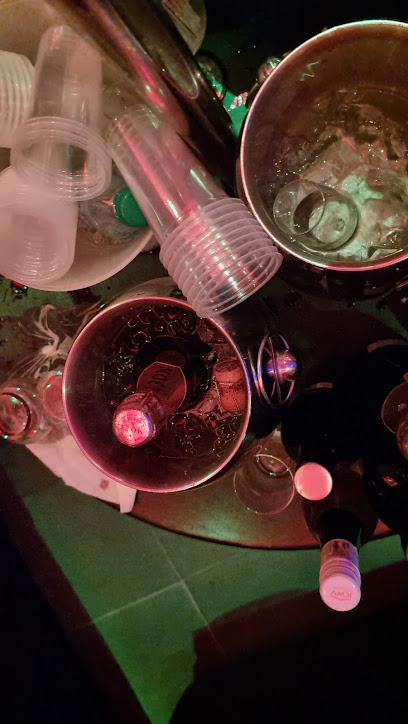
Mary G’s Bar & Restaurant
Discover the lively spirit of Serrekunda at Mary G’s Bar & Restaurant, where vibrant nightlife meets delicious local flavors.
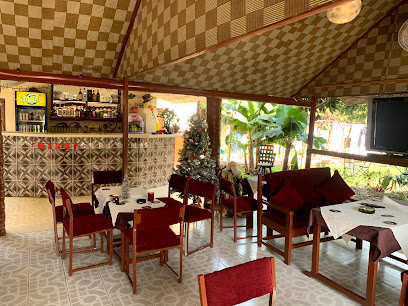
Travel experiences inspired by this city
Explore more travel diariesLocal Phrases
-
- HelloSalam Malekum
[sa-lam ma-le-kum] - GoodbyeTubab nyango
[tu-bab nyang-go] - YesEe
[ee] - NoAla
[a-la] - Please/You're welcomeJerejef
[je-re-jef] - Thank youAbaraka
[a-ba-ra-ka] - Excuse me/SorryWax sa la bopp
[waks sa la bop] - How are you?Nanga def?
[nan-ga def] - Fine. And you?Jama rek. Nopp?
[ja-ma rek nop] - Do you speak English?Nopp naa baangi yi?
[nop na ban-gi yi] - I don't understandMaangi ko
[man-gi ko]
- HelloSalam Malekum
-
- I'd like to see the menu, pleaseNopp def menu, jerejef
[nop def me-nu, je-re-jef] - I don't eat meatMaan la yaram
[man la ya-ram] - Cheers!Jerejef!
[je-re-jef] - I would like to pay, pleaseNopp def xalis, jerejef
[nop def xa-lis, je-re-jef]
- I'd like to see the menu, pleaseNopp def menu, jerejef
-
- Help!Nopp!
[nop] - Go away!Jib!
[jib] - Call the Police!Nopp def polis!
[nop def po-lis] - Call a doctor!Nopp def dokteer!
[nop def dok-teer] - I'm lostMaangi tollu
[man-gi tol-lu] - I'm illMaangi nopp
[man-gi nop]
- Help!Nopp!
-
- I'd like to buy...Nopp def...
[nop def] - I'm just lookingNopp def seeni
[nop def see-ni] - How much is it?Nopp laa fee?
[nop la fee] - That's too expensiveNopp laa yikk
[nop la yik] - Can you lower the price?Wax naa sa yikk
[waks na sa yik]
- I'd like to buy...Nopp def...
-
- What time is it?Sa yaram laa?
[sa ya-ram la] - It's one o'clockYaram bu fukk la
[ya-ram bu fuk la] - Half past (10)Fukk ak yaram (10)
[fuk ak ya-ram] - MorningSuba
[su-ba] - AfternoonNgoon
[n-goon] - EveningNdaw
[nda-w] - YesterdayMeri
[me-ri] - TodayNopp
[nop] - TomorrowBoop
[boop] - 1Benn
[ben] - 2Juj
[juj] - 3Talata
[ta-la-ta] - 4Naa
[na] - 5Jewo
[je-wo] - 6Jook
[jook] - 7Jowor
[jo-wor] - 8Jowor juj
[jo-wor juj] - 9Jowor talata
[jo-wor ta-la-ta] - 10Fukk
[fuk]
- What time is it?Sa yaram laa?
-
- Where's a/the...?Nopp def...?
[nop def] - What's the address?Wax saa leeral?
[waks saa lee-ral] - Can you show me (on the map)?Wax naa yeb me (map)?
[waks na yeb me] - When's the next (bus)?Saa def (bus) bu?
[saa def bus bu] - A ticket (to ....)Tiki (to ....)
[ti-ki (to)]
- Where's a/the...?Nopp def...?
History of Serekunda
-
Serekunda, widely recognized as The Gambia's largest urban center, traces its origins back to various Mandinka settlers who migrated to the region. The name 'Serekunda' is derived from 'Sere', a Mandinka family name, and 'Kunda', meaning compound or home. Historically, Serekunda served as a modest fishing village and agricultural hub, with its early inhabitants relying on the fertile lands and proximity to the Atlantic Ocean for sustenance.
-
During the 19th century, Serekunda, like much of The Gambia, fell under British colonial rule. The town's strategic location near the River Gambia made it a crucial point for trade and commerce, which further accelerated its growth. The British established trading posts and infrastructure that facilitated the export of groundnuts, a major commodity, thereby integrating Serekunda into the global economy.
-
In 1965, The Gambia gained independence from British colonial rule, marking a significant turning point in Serekunda's development. Post-independence, the town experienced rapid urbanization as it became a central hub of economic activity. The influx of people from rural areas seeking better opportunities led to the expansion of residential neighborhoods, markets, and infrastructure, transforming Serekunda into the bustling city it is today.
-
Serekunda is a melting pot of cultures, with a vibrant tapestry of ethnic groups including the Mandinka, Wolof, Fula, and Jola. This cultural diversity is reflected in the city's lively festivals and traditions. One of the most notable events is the annual 'Kanilai International Cultural Festival,' which showcases traditional music, dance, and crafts, celebrating the rich heritage of the region.
-
Today, Serekunda stands as a testament to The Gambia's dynamic growth and resilience. The city is a prominent destination for tourists, offering a mix of vibrant markets, historical sites, and beautiful beaches. Visitors can explore the bustling Serrekunda Market, the serene Bijilo Forest Park, and the Katchikally Crocodile Pool, each providing a unique glimpse into the city's multifaceted culture and history.
Serekunda Essentials
-
Serekunda is located in the western region of The Gambia, approximately 13 kilometers from Banjul, the capital city. The nearest major airport is Banjul International Airport (BJL), which is about a 20-minute drive from Serekunda. From the airport, you can take a taxi or arrange for a hotel shuttle service. There are also minibuses (locally known as 'gele-gele') that provide affordable transportation to Serekunda from various parts of the country.
-
Within Serekunda, taxis are the most convenient mode of transportation and are relatively inexpensive. Make sure to negotiate the fare before starting your journey. 'Gele-gele' minibuses are another popular option, especially for short distances. They are very affordable but can be crowded. Bicycles can also be rented for a more eco-friendly way to explore the city. Walking is feasible for shorter distances, but be mindful of the hot climate.
-
The official currency in The Gambia is the Gambian Dalasi (GMD). Major hotels, restaurants, and shops in Serekunda accept credit cards, but it’s advisable to carry cash for smaller establishments and local markets. ATMs are widely available, but it’s still a good idea to have some cash on hand. Currency exchange services are also available in Serekunda and at the airport.
-
Serekunda is generally safe for tourists, but like any other destination, it’s important to remain vigilant. Petty crimes such as pickpocketing can occur in crowded places like markets. Areas like Tallinding and London Corner have higher crime rates and it's advisable to avoid these areas, especially at night. Always keep an eye on your belongings and avoid displaying valuables openly.
-
In case of emergency, dial 117 for police assistance and 116 for medical emergencies. There are several medical facilities in Serekunda, including the Serekunda General Hospital. Pharmacies are also available for less urgent medical needs. It’s highly recommended to have travel insurance that covers medical emergencies. Keep a list of emergency contacts handy, including your country's embassy.
-
Fashion: Do dress modestly, especially in more conservative areas. Avoid wearing revealing clothing. Religion: Do respect local customs and traditions. Remove your shoes before entering mosques and dress modestly. Public Transport: Do be respectful and polite. Don’t argue over fares; negotiate politely. Greetings: Do greet people with a friendly 'As-salamu alaykum' (peace be upon you). Eating & Drinking: Do try local dishes like Domoda and Benachin. Don’t refuse food offerings, as it is considered impolite.
-
To experience Serekunda like a local, visit the bustling Serekunda Market where you can buy local crafts, fabrics, and fresh produce. Engage with the locals; Gambians are known for their hospitality and are often willing to share stories and tips. Don’t miss the chance to watch a traditional wrestling match, which is a popular local sport. For a unique experience, take a trip to the Tanji Fishing Village to see the daily catch and vibrant fish market.
Trending Landmark in Serekunda
Nearby Cities to Serekunda
-
Things To Do in Serekunda
-
Things To Do in Bakau
-
Things To Do in Lamin
-
Things To Do in Banjul
-
Things To Do in Brikama
-
Things To Do in Gunjur
-
Things To Do in Kaolack
-
Things To Do in Mbour
-
Things To Do in Farafenni
-
Things To Do in Soma
-
Things To Do in Thiès
-
Things To Do in Dakar
-
Things To Do in Canchungo
-
Things To Do in Janjanbureh
-
Things To Do in Bissau











